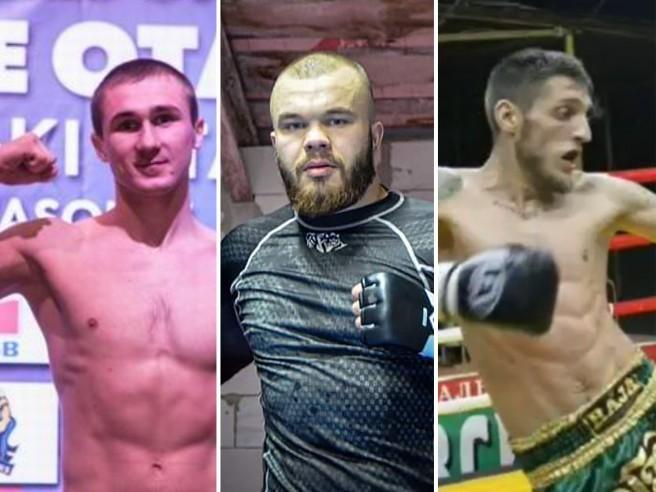The last match was set for March 12. “Boxing Show” at the Freedom Hall, 5:00 p.m., admission: 15 euros. But that afternoon, the seventeenth day of the war in the Ukraine, no one showed up, not even the doorman who had to open the turnstiles. In SpartaBox they did not open the gym for warm-up either. The changing rooms, empty. The strings, motionless. Electronic scoreboards off. The seats, deserted. All the boxers had gone to the front.
“It’s time to show how fighters we are,” boxing brothers Vitaly and Volodimir Klitschko, one mayor of kyiv and the other its motivator, said on television, and the gong was heard loudly: gloves off, champions and wastebaskets, all at trenches. There was no time to decide their destination: some returned from abroad and left behind millionaire contracts, others enlisted with the Azov Battalion and some were already part of the Police. The only important thing was to go out and hit the Russians hard, as much as possible, and spin like a butterfly and sting like a wasp, as Cassius Clay taught.
“Our athletes have set a great example,” Serhii Tishchenko, a lifelong ringside trainer, now president of the Ukrainian Boxing Federation, enthuses: “Until now we were proud of them. Now they are our heavenly heroes.”
We know that the heroes are all young and beautiful, we have to suck their hearts while they beat. And also tell their stories as the war engulfs them: the latest is Oleg Prudky, 30, two-time super lightweight national champion, 63 kg of courage brought to Cherkassy and flown last Sunday, along with three fellow soldiers from the forces Kord specials.
He had already gone to fight before the invasion and for once he, who has never been a star, had become an example for the great Oleksandr Usik, his friend, world champion and Olympic gold medalist: Oleksandr heard about Oleg and, on the day of the invasion, without a moment’s thought, he left his super London penthouse and a stellar engagement to follow suit and enlist. “A huge pain,” Usik posts from the front, mourning his friend. “War brings the best,” writes Prudky’s wife, Mariasha, at her farewell, “you have been an example to your two little girls who adore you and keep asking me when daddy is coming back.”
“I remember when Oleg put on his uniform and went to Cherkassy,” ex-coach Tischchenko is excited, “he asked me how he could train. And he got it. He cycled ten kilometers on his first day off to get to the gym. As soon as he came from the front he put on the gloves and won. It was incredible.”
Goals and rounds, corners and hooks, there are few things that Ukrainians like more than football and punches. But while there are few footballers in his army, boxers are legion. Few details are known of how Mosha Artem died on May 8, while he was resisting with the Azov Battalion in the cellars of the Mariupol steelworks.
Champion in the rings of kyiv, Mosha was known for a certain Nazi sympathy and for the cult of the physicist. It was his mother, Iryna, who published a short post in memoriam on Facebook, along with the screenshot of the last messages between mother and son: she tells him “the whole world is praying for you”, he replies: “I I feel”.
Very little is also known about Mykhailo Popov, who trained in the same gyms in kyiv, knew Mosha well, but was a Greco-Roman wrestling champion. Born in Donbas, he had returned to fight in an infantry unit since 2014, and then said goodbye and joined the Azov: they also killed him there, under Azovstal, despite having become a sniper, they say, with a infallible aim.
Every morning for three months, Ukrainians report the number of Russians killed: right now, 29,600. Instead, less is known about how many Ukrainians have died: President Volodimir Zelensky now admits an average of 100 soldiers a day, and counting.
Although Oleksiy Yanin, Ukrainian kickboxing and Muay Thai Thai boxing world champion, fell on April 7 with the Azov men in Mariupol, the news came a month and a half late. Tamara, his wife, kept the secret especially with Nazariv, his son. The friends send him off with a sticker: two crossed gloves.
No need to ask why so many boxers have died in battle. Boxing, said the Morgan Freeman of Million Dollar Baby, is the art of realizing a dream that no one sees but you: the dream of a victory that seemed, and still seems, impossible.
Conforms to The Trust Project criteria
















